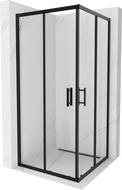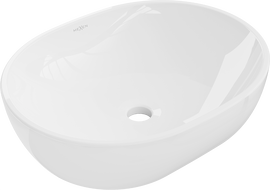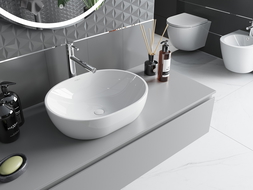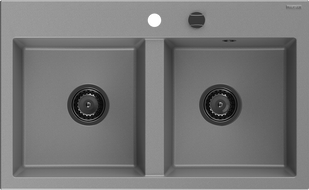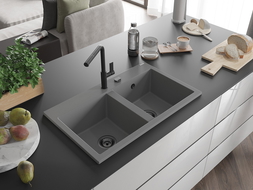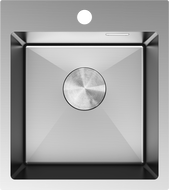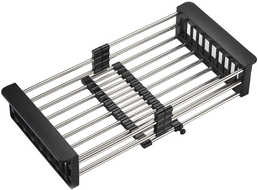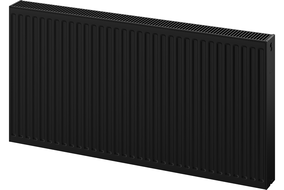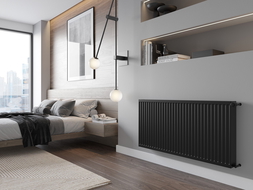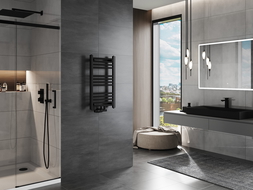
Electric heaters are devices that convert electrical energy into heat using various methods and technologies. They operate on the principle of converting electrical energy into thermal energy, which is then emitted into the surroundings to raise the room temperature. There are different types of electric heaters, each with its own characteristics that influence not only their appearance or efficiency but also their electricity consumption.
In the following entry, we discuss the issue of which electric heater consumes the least electricity and which one will be the best choice from the perspective of your household budget.
Get to know the most important types of electric heaters
Electric heaters are a solution that works perfectly in places where there is no possibility of installing other heating sources and when there's a need for effective heating of a given interior.
The currently available types of electric heaters include:
- convector heaters - operate on the principle of convection, i.e., the natural circulation of air within the room. The heater warms the air that comes into contact with its heating elements, causing warmer air to rise and cooler air to descend, resulting in better circulation and even heating of the space. Heating elements can be made from various materials, such as ceramics, which accumulate heat and release it slowly;
- oil heaters - these are heaters that use oil as a heat transfer medium. The oil, heated by the heating element inside the heater, circulates within a closed loop, evenly distributing heat across the entire surface of the device. Heat is then emitted into the environment primarily by radiation but also by convection. Oil heaters are quiet and can retain heat for a longer time, even after being turned off;
- halogen heaters - operate on the principle of infrared radiation. They use halogen bulbs to generate heat, which is emitted directly to the people and objects within the heater's range. The heat effect is felt immediately after the device is turned on. Halogen heaters are particularly effective for heating small spaces or as an additional heat source.
Which heater consumes the least electricity?
Even modern electric heaters are not among the most economical solutions, but there are models that are more or less cost-effective. If you want to check how much electricity a certain type of heater consumes, check the information on the device's rating plate.
For example, plates marked with 500, 2000, or even 5000 W indicate how much power the heater consumes in an hour. However, the final electricity bill concerns not only the device's power but also how long the heater was used during a given billing period.
It may turn out that heating a room with a small 250 W heater will be more expensive than using a 1500 W heater.
Convector heaters
Convector heaters are considered low energy consumers because the heat is generated by the circulation of heated air. This is one of the most popular and frequently used solutions, especially effective in small rooms that need to be heated quickly.
A convector heater operates on the principle of gravitational airflow, meaning that cool air enters the heater from below and is then emitted outward after being heated - we have already mentioned this when discussing types of heaters.
Modern convectors are equipped with a fan heater that quickly distributes warm air throughout the room. They are usually small portable heaters that support existing heat sources, allowing for optimal thermal comfort. Electricity consumption here mainly depends on the power of the heater.
Electric oil heater
If you want to effectively heat the air in the room but do not expect immediate results, you can opt for an oil heater. The special oil contained in it is heated using generated electrical energy. The oil releases its temperature to the heater's housing, which in turn releases heat to the outside.
The greatest advantage of this type of heaters is that they emit heat for an extended period even after being disconnected from the power supply. Oil heaters take a relatively long time to heat up and consume a lot of energy during this time. However, because they are radiation heaters, emitting heat long after being unplugged from the socket, this solution is quite economical and allows you to achieve thermal comfort at a relatively reasonable cost.
Ceramic heater
In the case of a ceramic heater, the heating element is a special ceramic panel located inside the housing. The panel heats up quickly and effectively stores heat, which is then released to the outside. As a result, ceramic heaters, like oil models, continue to heat even after being disconnected.
With this type of heater, the highest power consumption occurs during the startup and warming of the heater. Later, the power consumption stays at a slightly lower level, allowing for the ceramic panel to maintain a constant temperature.
How to choose an electric heater for a specific room economically?
The electricity consumption of an electric heater depends not only on its type but also on several other factors, such as:
- expected room temperature,
- size of the room,
- level of building insulation.
One of the most important factors influencing the possibility of achieving the optimal temperature is matching the heater's power to the area of the room to be heated. Before you go shopping, calculate the power needed for the heater.
Calculating heater power
Each electric heater has a specific power, which should be matched to the volume of the room. Especially if we aim to maintain a constant temperature at a chosen level, rather than just temporarily raising it. It is assumed that the heating requirement is 85 W per square meter of a room measuring 2.80 m in height.
Therefore, to heat a room of, for example, 20 m2, you should invest in an electric heater with a power of 1700 W. The higher the desired temperature in a given room, the stronger the heater should be.
In well-insulated buildings and rooms, all types of electric heaters work excellently.
Which electric heater consumes the least electricity - summary
It is difficult to clearly indicate which energy-efficient electric heater will work best in your home. The same goes for power consumption. It depends on many different factors. Therefore, when searching for the right heating device, you should pay attention not only to its power but also to how it will be used.
If you are looking for a device that will help you maintain room temperature at a fairly stable level, a heater with a ceramic element is a good choice, as well as an oil heater. Radiation heaters emit pleasant heat long after being unplugged.
On the other hand, if you need a heater that will quickly reach a high temperature, opt for a convector or fan heater. Cool air flows into the heater and allows for rapid heating of the room, which unfortunately cools down just as quickly after the device is turned off. The advantage of this type of heating is that it is characterized by relatively low energy consumption and allows for instantaneous air heating.

